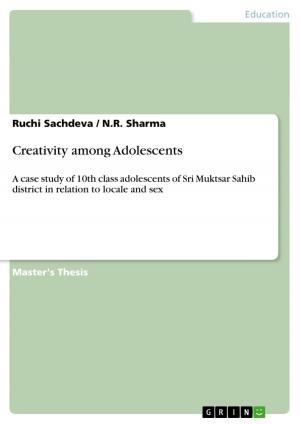Excluding Sinn Féin - The broadcasting ban of 1988
The broadcasting ban of 1988
Nonfiction, Reference & Language, Study Aids, ESL, Foreign Languages| Author: | Mandy Kraml | ISBN: | 9783640225736 |
| Publisher: | GRIN Verlag | Publication: | December 6, 2008 |
| Imprint: | GRIN Verlag | Language: | English |
| Author: | Mandy Kraml |
| ISBN: | 9783640225736 |
| Publisher: | GRIN Verlag |
| Publication: | December 6, 2008 |
| Imprint: | GRIN Verlag |
| Language: | English |
Seminar paper from the year 2007 in the subject English Language and Literature Studies - Culture and Applied Geography, grade: 1,7, University of Potsdam (Institut für Anglistik/Amerikanistik), course: Contemporary Northern Ireland - A Safe Road to Peace at Last? , 7 entries in the bibliography, language: English, abstract: Throughout the years of the Troubles Northern Ireland generated worldwide media attention. Unsurprisingly, the people of Northern Ireland were very news conscious. The local population wanted to watch, read and listen to the ways, in which their problems were being assessed by the representatives of the media, local as well as international (Bairner). According to Bairner, interest in media output was part of a wider desire to engage in debate about the political situation and people also turned to the media to hear about ways in which their day-to-day routine might be adversely affected by the Troubles. For example, they would listen to radio news reports about what was happening in their own or another part of the town (Bairner). But it is said, that during the Troubles the media didn´t simply act as objective communicators of information. As Bairner writes, many people have argued that journalists and broadcasters have been themselves political actors rather than observers. 'On the one hand, there are those who suggest that sections of the media have served the interests of the British state by acting as channels for the dissemination of government propaganda' (Bairner). He also claims that this has not necessarily been the result of conscious decisions made by the media but of pressure, which has been put on the media to ensure their support for government policy. McCann also describes the lack between consumed reports and reality: 'Most British people have a distorted view of what is happening in Northern Ireland. This is because they believe what they read. There have been honorable exceptions. But examination of reports reveals a clear pattern of distortion.
Seminar paper from the year 2007 in the subject English Language and Literature Studies - Culture and Applied Geography, grade: 1,7, University of Potsdam (Institut für Anglistik/Amerikanistik), course: Contemporary Northern Ireland - A Safe Road to Peace at Last? , 7 entries in the bibliography, language: English, abstract: Throughout the years of the Troubles Northern Ireland generated worldwide media attention. Unsurprisingly, the people of Northern Ireland were very news conscious. The local population wanted to watch, read and listen to the ways, in which their problems were being assessed by the representatives of the media, local as well as international (Bairner). According to Bairner, interest in media output was part of a wider desire to engage in debate about the political situation and people also turned to the media to hear about ways in which their day-to-day routine might be adversely affected by the Troubles. For example, they would listen to radio news reports about what was happening in their own or another part of the town (Bairner). But it is said, that during the Troubles the media didn´t simply act as objective communicators of information. As Bairner writes, many people have argued that journalists and broadcasters have been themselves political actors rather than observers. 'On the one hand, there are those who suggest that sections of the media have served the interests of the British state by acting as channels for the dissemination of government propaganda' (Bairner). He also claims that this has not necessarily been the result of conscious decisions made by the media but of pressure, which has been put on the media to ensure their support for government policy. McCann also describes the lack between consumed reports and reality: 'Most British people have a distorted view of what is happening in Northern Ireland. This is because they believe what they read. There have been honorable exceptions. But examination of reports reveals a clear pattern of distortion.















